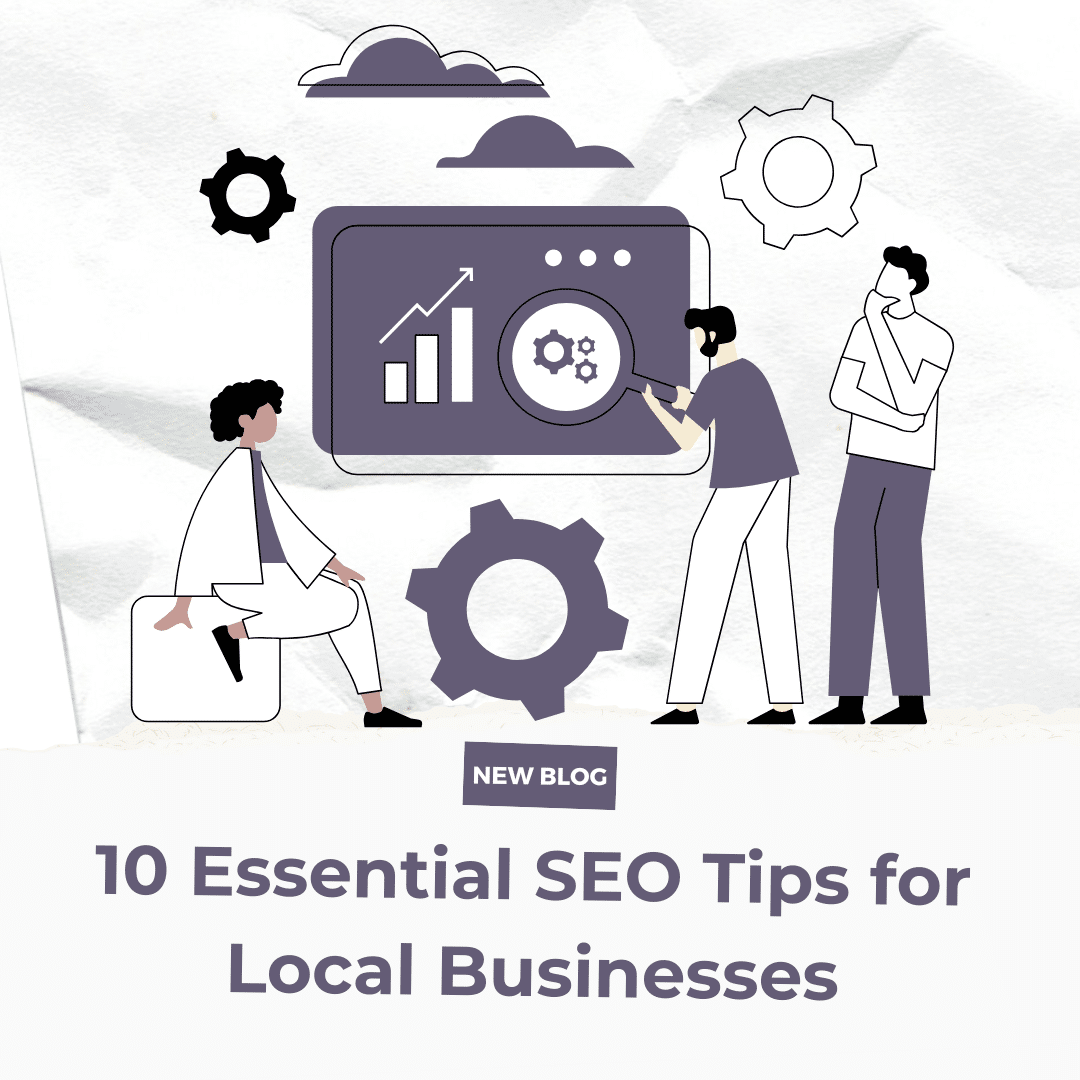As a local business, you need to ensure that your online presence stands out to the right audience. With more customers turning to search engines like Google to find services and products near them, implementing an effective local SEO strategy is crucial for attracting nearby customers and boosting sales. Here are 10 essential SEO tips to help your business gain visibility and rank higher in local search results.
1. Optimize Your Google My Business Listing
One of the first things you should do is create and optimize your Google My Business (GMB) listing. This free tool allows your business to appear in local search results and on Google Maps. Make sure your business name, address, phone number, website, hours of operation, and category are accurate and up-to-date. Additionally, encourage your customers to leave reviews and respond to them, as reviews are a key ranking factor.
2. Ensure NAP Consistency Across the Web
NAP stands for Name, Address, and Phone number. It’s essential that your business’s NAP information is consistent across all online platforms, including your website, Google My Business, social media, and online directories like Yelp and Yellow Pages. Inconsistent NAP details can confuse both search engines and potential customers, harming your local SEO rankings.
3. Incorporate Local Keywords in Your Content
Local SEO heavily relies on the use of location-specific keywords. Make sure to include keywords that reflect your business’s location, like “local,” or “near me,” in your website content, blog posts, and meta tags. For example, if you run a coffee shop, use keywords such as “best coffee near me” or “coffee shop in [your city].”
4. Use Local Structured Data Markup
Structured data helps search engines understand your website’s content and displays it more effectively in search results. By adding local business schema markup to your website, you can help search engines identify key information about your business, like your hours, location, services, and reviews. This can improve your visibility in local search results and lead to better click-through rates.
5. Create Location-Specific Pages
If you have multiple locations, create separate web pages for each one. This helps you target each area specifically with relevant keywords and content. For example, you can create a page titled “Web Development Services in [Your City],” offering information on services tailored to your community. This will improve the chances of ranking higher for searches made by local customers.
6. Optimize for Mobile Users
More than half of all online searches are done on mobile devices, which means having a mobile-friendly website is crucial for local SEO. Ensure your website is responsive, meaning it automatically adjusts to different screen sizes. A mobile-optimized website not only helps with user experience but also improves your ranking in Google’s mobile-first index.
7. Build Local Backlinks
Backlinks are one of the most important ranking factors in SEO. Focus on building backlinks from other local businesses, organizations, and blogs in your area. You can do this by guest blogging, sponsoring local events, or collaborating on community projects. These local backlinks signal to search engines that your business is relevant to the area and can help boost your local rankings.
8. Focus on Online Reviews
Customer reviews are a critical component of local SEO. Positive reviews on Google My Business, Yelp, and other review platforms can improve your business’s trustworthiness and visibility in local search results. Encourage satisfied customers to leave reviews, and always respond to both positive and negative reviews. This shows you value customer feedback and enhances your reputation.
9. Create Localized Content
Blogging and creating localized content can improve your local SEO rankings. Write posts that highlight local events, news, and partnerships in your area. For instance, if your business sponsors a local event, write a blog post about it, or if there’s a local development impacting your industry, offer your insight. Not only does this build community engagement, but it also boosts your SEO by targeting localized keywords.
10. Monitor Your Performance
SEO is an ongoing process, so it’s essential to monitor your performance regularly. Use tools like Google Analytics and Google Search Console to track your website’s traffic, rankings, and other key metrics. By analyzing your data, you can identify areas for improvement and adjust your strategy accordingly to stay ahead of the competition.
Okay, Let’s Wrap It Up
Local SEO is a powerful tool for businesses looking to attract nearby customers and grow their brand. By optimizing your website, content, and online presence, you can improve your local rankings and ensure your business is easy to find when potential customers search online. Implement these 10 SEO tips, and you’ll be well on your way to boosting your local visibility and standing out in a competitive market.







